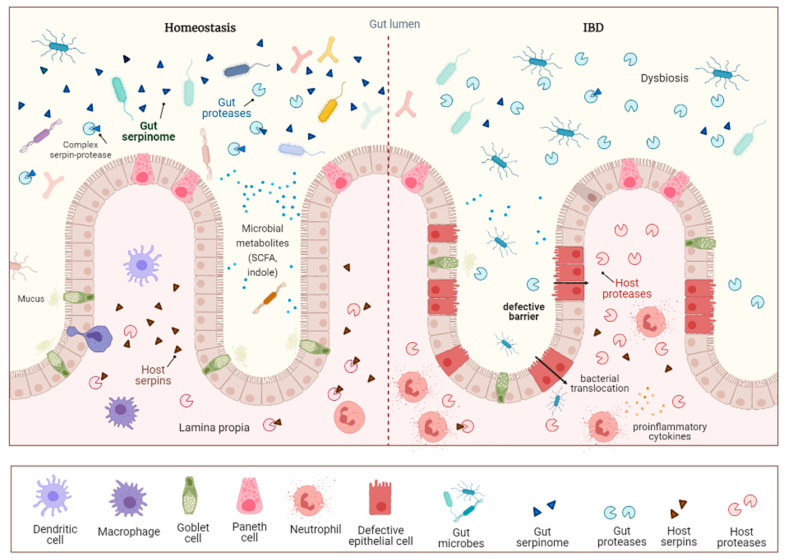Figure 1.
Schematic illustration of gut serpinome involvement in intestinal homeostasis and IBD. During homeostasis, the gut microbiota elicits an immune tolerance phenotype in the host. The activity of luminal serine and cysteine proteases is tightly regulated by their specific serpins of both gut microbial and host origin. A key feature of IBD is the alteration of the composition of the gut microbiota, dysbiosis, characterized by the decrease in microbial diversity with a loss of beneficial symbionts and the expansion of pathobionts. The dysregulation of the proteolytic balance with an increased protease activity over serpins alters the intestinal barrier and exacerbates inflammation. SCFA: short-chain fatty acid.

